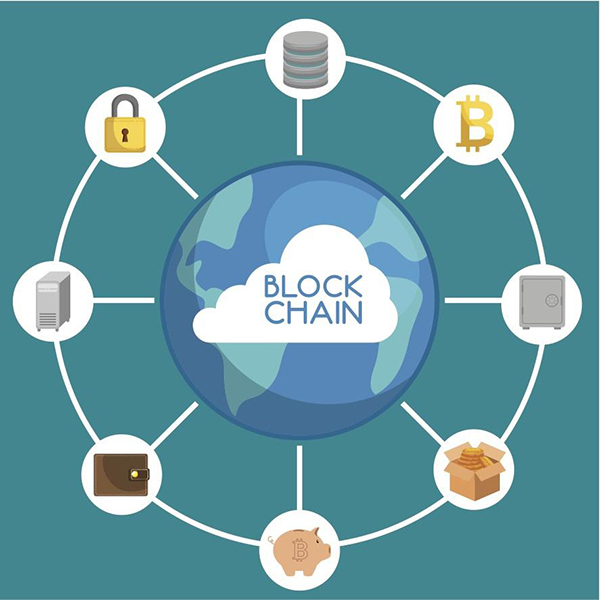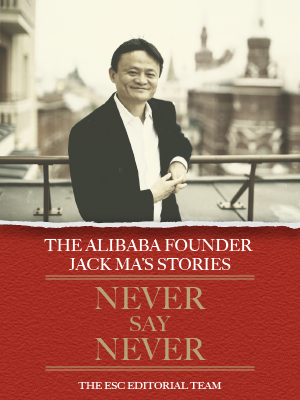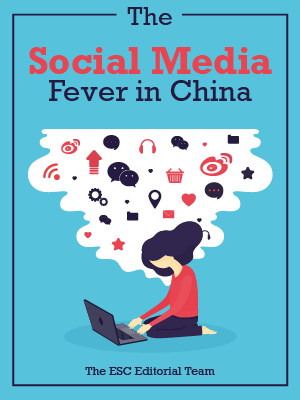Ecommercestrategychina.com uses cookies and other technologies to provide you a better browsing experience. You can get more information regarding the use of cookies, or decline it whenever by clicking Privacy Policy. By using this site or clicking “Okay”, you give us the consent to the use of cookies.
OKAY
Introduction
Blockchain is considered to be the fifth most important technology after steam engine, energy, information and internet technology to trigger a subversive revolution. As a disruptive creation on a blockchain network, Bitcoin is considered as a digital currency a viable alternative currency to national fiat currencies. “Futurists claim that cryptocurrency is going to disrupt 25% of national currencies by 2030 and threaten the central banking system”. [Read the original source of the quote at MintDice: Can Crypto Replace National Currencies]
As the technology matured and a variety of blockchains bloomed, the uses quickly diverged from the pure money aspect. In this article, we focus on the potential of blockchain to shake up multiple industries, such as tracking market data, medical sector reform, the Internet of Things (IoT), the supply chain, and the security enhancement of social networks.
Contribute to the Fight Against Counterfeiting
On January 15, 2018, the market valuation of A-shares of China’s Moutai (a brand of baijiu, a distilled alcoholic beverage) exceeded RMB one trillion, and the price per share climbed to the highest record of RMB ¥4,442. Its profit was increased by 8127% in 2017, and the average annual growth rate has exceeded 40%.
With the rising price of Moutai, counterfeit and substandard products have surfaced in the Chinese market. In terms of Maotai’s production and sales volume, there are a large number of counterfeit Moutai that have come on the market and increase annually, posing a great risk to the brand and reputation of Moutai.
The maturity of blockchain technology provided Moutai with a new opportunity to focus on counterfeiting. According to the transparent and invariable properties of the blockchain technology, the source is traceable from bottling to storage to distributors and ultimately to consumers. The data from each bottle of Moutai are recorded on the blockchain. With the features of blockchain traceability, consumers can clearly see whether they are buying authentic Moutai.
The blockchain is able to help consumers avoid a number of health risks from fake alcohol. Moutai will better defend the “national spirit image” and promote China’s traditional culture throughout the world. The phenomenon of bad money that drives out good money can also be prevented in society as a whole. Regarding the safety issue in the food industry, blockchain technologies may also gradually trigger an industry-wide revolution.
Once the blockchain technology is mature enough, it can also capture the whole line data to monitor the entire process of Moutai production. As long as there is abnormal data, technicians will eventually find it to ensure product quality as much as possible.
Accelerate Innovation in the Medical Field
Stocks in the medical sector are the most common in the US stock market, and have been so for many years. This reflects the rapid growth of the medical field.
Let's take a look at the forecasted ageing in China: By 2020, the elderly population is estimated at 248 million, or under 18% of the population. In 2025, the population over the age of 60 will have reached 300 million. Then China will have become a super-elderly country. This rapidly growing ageing population will strongly encourage blockchain to accelerate innovations in the medical field. Benefits are always the best indicator of resource allocation.
In actual treatments, there is a very close relationship between understanding the patient's medical history and the pathology of the drug. For example, patients with heart disease and hyper-tensive patients must strictly avoid the use of anaesthetics. If blockchain technology can be rapidly promoted in the medical field, this will give physicians relatively transparent (public) information that they can retrieve at any time, and all the patient's information will be visible at a glance. This will reduce errors in emergencies and give doctors more time to save lives.
Of course, there is much more than treatments in the medical field. The significant increase in new business models or efficiencies through blockchain will help to improve the quality of medical services. Blockchain can be used most widely in these four areas: medical/health records, data integration of medical devices, monitoring of adverse events, and clinical trial records.
Taking the medical/health record as an example, relevant data show that by 2019, the number of portable mobile device users will reach 5.5 billion for a biomarker analysis, which corresponds to an ageing society. Blockchain does not require the medical industry to abandon the current database, but to integrate the current database. Not only does it greatly reduce costs, it also improves the efficiency of data usage. More importantly, it can monitor the health conditions of medical patients at any time with their approval.
The blockchain system can analyse and distribute the patient’s medical data to other appropriate medical facilities to maximise the use of existing medical resources. Meanwhile, China’s National Health and Family Planning Commission is also able to conduct real-time audits and data traces on the blockchain system. On the one hand, it can monitor the transformation of medical structures. On the other hand, it can prevent bad behaviours such as insurance fraud and medical corruption.
Undoubtedly, with the increase of portable devices, people’s interest in health will also be in-creasing. Companies will innovate more to achieve a disruptive revolution in the medical field. Medical devices connected to the Internet of Things (IoT) can transfer more medical services from the hospital to the home.
Break the information dilemma of the e-commerce industry supply chain
Blockchain can benefit e-commerce in various aspects, including payment, logistics and more. The supply chain itself has the characteristics of links. By combining blockchain’s transparent information data, the data can be made tamper-proof and traceable.
In China's e-commerce platforms such as JD, Taobao, and Tmall, because of the wide range between the upstream and downstream supply chain and the involvement of many companies, it is difficult for the core companies to track events or conduct an investigation throughout the supply chain due to limited management capability and scope. Customers and buyers also lack a reliable way to verify and validate the true value of the products and services they purchase.
To make the entire supply chain transparent, blockchain can build a platform that includes all supply chain links such as suppliers, manufacturers, distributors, retailers and logistics. On this platform, all companies record logistics, information flows and capital flows along the chain, track and monitor the entire supply chain dynamics in real time to achieve collaboration. In addition, blockchain technology records the raw material information, component production information, each shipment information and all the data of each finished product in a unique data storage format to meet the needs of each participant in the supply chain: for example to trace the origin of the raw materials and the origin of the goods, or the record of telemetry data of the component manufacturing. JD already had its blockchain offering for commodity traceability.
There are currently precedents that attempt to use blockchain technology to improve supply chain management. One of which is Vechain, a supply chain management platform based on blockchain technology. It focuses on the use of blockchain technology to provide supply chain management solutions for the production and delivery of branded products and to provide product quality tracking and authenticity management services. Another one is WuChain, which specifically targets high-quality products, provides credit endorsements for manufacturers, processors, logistics providers, warehouse providers and consumer terminals through services such as credit enhancement and traceability.
Blockchain technology can successfully change the supply chain. In the long term, it will enhance the transparency, traceability and security of the supply chain and foster an environment of trust and integrity that will help build a safer and more reliable economy in the Chinese e-commerce marketplace.
Please Login to add comments.

$9.99 $19.98

$9.99 $19.98